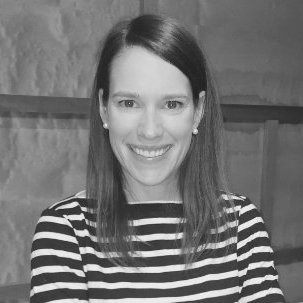Confessions of a Younger Applicant

Vantage Point had the pleasure of interviewing Anjelica, a Columbia Business School graduate, about her experience as a younger MBA applicant with <2 years of experience. She’s now a successful finance professional at a major bank in New York City and a valuable resource for anyone with a non-traditional pre-MBA career or limited pre-MBA work experience. Read below for valuable tips & advice from someone who’s walked the path before you!
1. How many years of work experience did you have when you applied to business school?
“I had 1.5 years of work experience when I applied to business school. I was working in the US Senate doing economic policy at the time. I had a little more than 2 years [of work experience] by the time I started CBS.”
2. Why was the year you applied to business school the right time for you?
“I was in Capitol Hill at the time, and had the opportunity to see many major pieces of legislation during my time there (e.g. Healthcare Reform, Wall Street Reform). Furthermore, I was thrown into a relatively senior position early on in my career because of staffing changes. My member (Senator Boxer) was also running for reelection at the time, which allowed me to see the campaign side of things. All those factors combined, plus the fact that the Democratic party had just lost the House and lost the super majority in the Senate, provided me the fortunate experience of seeing a broad range of topics in my 2 years there. Since my immediate post-MBA goal was to switch careers to the private capital markets, one more year in policy wasn’t going to make that switch any easier.”
3. What challenges or hurdles do you think you faced as a younger professional in completing your applications?
“While I don’t think I had all of these challenges, below is a list of what I have found trip up a lot of young business school candidates:
- Having enough different interesting projects and work experiences to describe in applications and talk about in interviews to make them stand out
- Lack of leadership opportunities
- Inability to describe not only what they did, but the impact of the tasks they worked on (i.e. not being able to see the bigger picture of their jobs and connect that to what they do day to day)
- Don’t have a clear explanation on why they are applying now vs. waiting a year or two? Just because you want a challenge is not enough, you can get that through a promotion or changing firms. Why will business school help your career today?
- Lack of clarity on what they want to do not only right after business school, but also long-term.”
4. What strategy(ies) did you utilize in your applications to overcome those challenges?
“I made sure to have a very direct, and well-prepared answer for “why now?” for interviews, and made sure that I indirectly addressed this question in my essays as well. I also made sure to not only highlight the leadership role that I had in Senator Boxer’s office but also elaborate on the relevance of this leadership position to demonstrate why I was ready for business school.”
5. Did you have a back-up plan if business school did not work out the first year you applied? If so, what was it?
“Yes. I was actively interviewing for economic and financial policy roles at lobbying firms and technology companies.”
6. Once enrolled, how did your limited work experience impact your internship & full-time job recruiting process, if at all?
“I would say not at all because the field I was coming from was so foreign already. When I was seeking capital markets roles, it was hard to relay any direct application of my previous job on Capitol Hill and a couple more years in Senator Boxer’s office wouldn’t have changed that.”
7. If you could do it all over again, would you have chosen the same timing to apply or would you have waited? Why?
“That depends on if I ever want to get back into politics! If the answer is yes, then I would have waited an extra year or two. It would have been beneficial for me to maximize the experience I had at an unusually senior level in order to find roles back in government, or even at lobbying firms, after business school. That being said, I currently work in finance, and as a career switcher I think I have an advantage as a younger business school graduate. There was not a clear path for me to get to where I am now without attending business school, so waiting was only going to delay the process of beginning to gain the hard skills and new work experience I need.”
8. Do you have any advice for young applicants that are considering business school with <2 years of work experience?
- “Talk to other younger MBA graduates — not everyone feels like they were able to extract the full value because they were on the younger side.
- Ask yourself honestly if you’re applying to business school right now just because you don’t like your job, or don’t know what else to do (or didn’t like the score you got on the LSAT!)
- Make sure to have clear and articulated post-business school goals, and support for how each step cannot be completed with an MBA.
- It IS as fun as it looks!”
Everyone’s experience and journey to business school is different and you need to make the right decisions for YOU, including when you apply. However, if now is the right time for you, don’t necessarily be deterred by limited work experience: if you think now is the time and you can make a compelling case for that – go for it! Yes, the median work experience at the top business schools is ~4 years, but each class is comprised of students who fall both above and below that figure. Instead of focusing on years of experience, focus on “what” you’ve been doing in those few years: build your story and define your post-MBA goals in order to show the admissions committee that you’ll be a valuable addition to the program. It’s never too soon to start working on that!
Not sure where to get started or if this applies to you? We can help! Contact the team at Vantage Point MBA Admissions Consulting today for a free consultation and learn how we can help you develop a winning application to your dream schools.
vantagepoint@vantagepointadmissions.com




